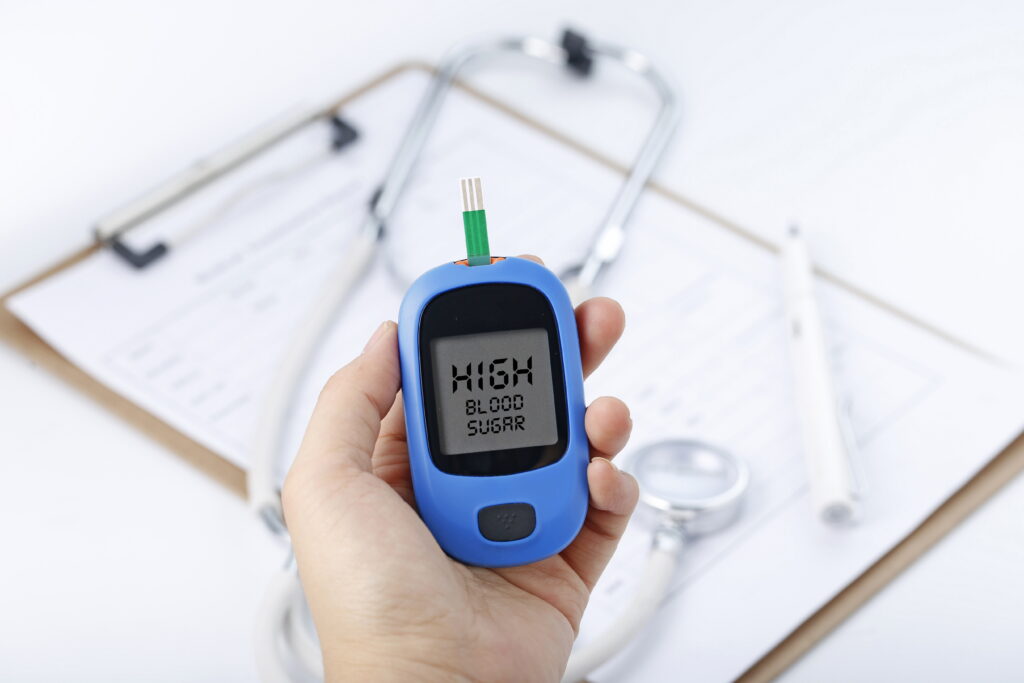Uncategorized
Diabetes and Old Age: 4 Amazing Tips to Prevent
Every 1 out of 4 adults over age 60 has diabetes.
Isn’t that some shocking news?
As we keep getting older, the risk of developing diabetes increases. Along with diabetes, complications like hypoglycemia, kidney failure, and heart-related disease are more common in younger people.
You can’t stop getting older but can lower the odds and control it. Multiple factors are involved with insulin resistance, including decreased insulin production from the pancreas and muscle loss.
What causes diabetes in seniors?
The risk of diabetes (type 2) increases with age. One of the main reasons for diabetes in old age is increased insulin resistance.
And the factors that cause insulin resistance are reduced muscule mass, overweight, and reduced physical activities, as well as weal functioning pancreas.
Diabetes is more likely to occur if you:
- Are 45+ years and have high blood pressure;
- Are over 45+ years and overweight;
- Are over 55+ years of age;
- Have pre-diabetic condition;
- Lifestyle with no physical activity.
What are the symptoms of diabetes in older people?
The critical issue for older adults with diabetes is that aging may mask the symptoms of diabetes. A mild to moderate rise in blood sugar might not be a sign of diabetes.
Frequent urination and excessive thirst are common symptoms of diabetes but are not obvious in older age. In addition, the symptoms like feeling tired, lethargic, or weight gain can be misinterpreted as a part of the aging process.
Hence, older adults with diabetes might remain undiagnosed until damage has been done.
How to Manage Diabetes in Old Age?
Managing blood sugar is vital to controlling diabetes. Here are five fantastic ways to naturally lower your blood sugar.
Regular Physical Excercise
Regular exercise can help you maintain a moderate weight that helps in lowering the chances of diabetes. Furthermore, it helps increase insulin sensitivity, effectively using sugar in your bloodstream.
Experts recommend 30 minutes of aerobic exercise five times a week and at least two sessions of strength training each week. Many communities feature on-site training sessions to encourage an active lifestyle.
Take small breaks while working on a computer or watching TV. Take a few minutes to stand, walk, or do a light exercise every 30 minutes.
Lose Extra Weight
Obesity is associated with the risk of diabetes. Studies show that maintaining a healthy weight reduces risk almost by 60%.
When you consume too many calories, your glucose level rises, putting pressure on your pancreas to produce more insulin. Your pancreas might not meet those extra demands, and thus, glucose levels will continue to grow.
Losing extra pounds can manage diabetes and your reliance on insulin medication.
Get Enough Quality Sleep
It might sound weird, but sleep can raise and lower your glucose level. Decrease sleep is a risk factor that increases blood sugar levels. As a result, lack of sleep is associated with diabetes.
One-quarter of people with diabetes report sleeping less than six hours or more than eight hours a night, which elevates blood sugar,
Sleep deprivation raises ghrelin (the hunger hormone) and reduces the level of leptin hormone, making us feel full. Thus, sleep apnea does not directly cause diabetes; it is a risk factor for type 2 diabetes that increase insulin resistance.
Improving sleep quality is thus very important, and your doctor might recommend sleep aids for diabetes or additional ways to get better sleep.
AVG’s Mahayog
Some herbs are said to help healthily manage diabetes. AVG’s mahayog is bent with these herbs to ensure a healthy body.
Mahayog has been formulated with Bhringraj, Ashwagandha, Draksha, Arjun, Shatavari, Vidharikand, Vidhara, Safedmusli, Brahmi, Shankhpuspi, Ajneer, Aanant mool, Chopchini, Salam Punja, Kali Mirch, Dalchini, Shilajit that helps in managing your blood sugar.
The herbal syrup helps manage diabetes effectively, and its related problems include reducing blood sugar, cholesterol, frequent urinary issues, and many others. It helps control weight and stimulates the functionality of the pancreas and other organs.
Consume 15-20 ml twice diluted in 200 ml of water empty stomach in the morning and right before meals in the evening.
To Wrap Up
As with all senior living care, the cost of diabetes care depends on the level of help needed.
However, some basic things can be done to help prevent diabetes, or at least keep it under control. These include eating a healthy diet, exercising regularly, and managing stress.
Disclaimer: Do visit a professional or healthcare provider for more details. The blog is only for educational purposes.

